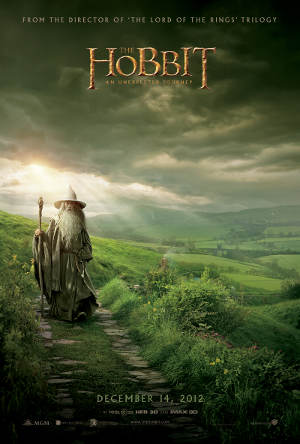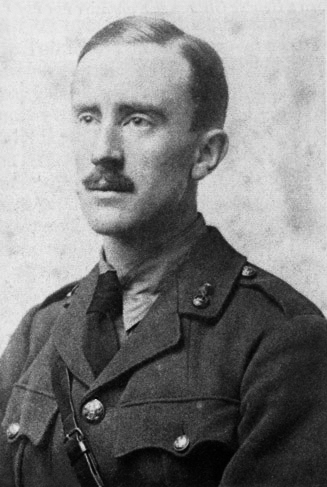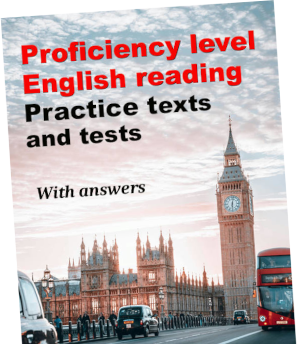People
JRR TOLKIEN - creator of the Lord of the Rings
 "Middle
Earth" is a world to itself,
a magical mythical place like no other. It is one of the most famous
places in twentieth century fiction, and the wonderful fruit of a
brilliant imagination. The Lord
of the Rings, the
trilogy set
in this mysterious world, has become one of the great
classics of twentieth century literature. It has been translated into
dozens of languages and imitated by dozens of writers, storytellers and
film makers; yet no-one has surpassed the genius of the original.
J.R.R.Tolkien, the author of Lord of the Rings, was the improbable
creator of this great work of fantasy.
"Middle
Earth" is a world to itself,
a magical mythical place like no other. It is one of the most famous
places in twentieth century fiction, and the wonderful fruit of a
brilliant imagination. The Lord
of the Rings, the
trilogy set
in this mysterious world, has become one of the great
classics of twentieth century literature. It has been translated into
dozens of languages and imitated by dozens of writers, storytellers and
film makers; yet no-one has surpassed the genius of the original.
J.R.R.Tolkien, the author of Lord of the Rings, was the improbable
creator of this great work of fantasy.
It was
while he was marking exams in the early 1930's that J.R.R.Tolkien,
Professor of Mediaeval English Literature at Oxford University, wrote
down a strange sentence that started: "In a hole in the ground, there
lived a hobbit..."
Obviously, creative writing
was more interesting than marking papers, as Tolkien went on to
transform his sentence into a full novel, called "The Hobbit",
published in 1937.
Quite unlike any other book in contemporary English
literature,
the Hobbit was an extended fairy tale, an allegory set in a mythical
world peopled with strange creatures and animals. It was not the sort
of book that ought to have become a best seller in the late 1930's, but
it did – so much so that the publisher requested a sequel.
Delayed by the horror of war, the first volume of Lord of the Rings
eventually reached the bookshops in 1954.
Since then, Tolkien has come to be seen as one of the most
important figures in English literature of his century, an original
genius who created his own style of literature and his own universe. So
who was this unusual figure, born in the late nineteenth century in
rural South Africa?
 John Ronald Reuel Tolkien
first came to England at the age of 4, when his mother determined that
it would be better for him to be brought up in a milder climate. His
father, a banker, should have followed his family back to England, but
shortly after their departure Arthur Tolkien caught rheumatic fever and
died; Ronald and his brother were thus brought up by their mother from
age four onwards.
John Ronald Reuel Tolkien
first came to England at the age of 4, when his mother determined that
it would be better for him to be brought up in a milder climate. His
father, a banker, should have followed his family back to England, but
shortly after their departure Arthur Tolkien caught rheumatic fever and
died; Ronald and his brother were thus brought up by their mother from
age four onwards.
Tragedy was to mark Ronald's
childhood again; when he was 10, his mother died of diabetes, leaving
him and his brother to be brought up in the care of a
family friend,
Father Francis Morgan, a Catholic priest.
With no parents, and no family except his brother, Ronald was
left much to himself; a dreamer, he loved reading and could happily
lose himself in the imaginary worlds he passed through in the pages of
novels. Yet as a pupil at King Edward's School in Birmingham, he proved
to be a brilliant linguist, and soon mastered French and German, Latin
and Greek, plus Anglo Saxon, Old Norse, Icelandic and Finnish. His
interest in Scandinavian languages also led him into a world of sagas
and mythology.
At the age of sixteen, Ronald fell
in love with a pretty girl, Edith Bratt, three years his senior, who
was another orphan living in the same lodging house in Birmingham. In
the strict climate of Edwardian Britain, teenage romances were frowned
on, and although Ronald and Edith did their best to keep
things a
secret, it was not very long before someone spilled the beans. Furious,
Father Francis removed Ronald to new lodgings, while Edith's guardians
sent her to live with relatives in the genteel town of
Cheltenham.
 From Amazon, Barnes & Noble, Waterstones and good bookshops
From Amazon, Barnes & Noble, Waterstones and good bookshops
Heartbroken, Ronald swore
eternal love to Edith, even though he
could not see her again; and with no other girls to worry about, he
escaped from his sadness into hard work at school, eventually winning a
scholarship
to Oxford to study philology.
The
question of whether art imitates reality, or vice versa, is one which
is often discussed; but in Tolkien's case, the answer seems to be quite
clear! Raised on a diet
of novels, sagas and imaginary fiction, Ronald
Tolkien did the kind of thing "that only happens in books"; when
midnight struck on the day of his 21st birthday, he wrote to Edith
announcing his intention of marrying her at once!
Edith, however, had in the mean time got engaged to a young
man
in Cheltenham, and wrote back to Ronald with this unexpected news! On
receipt of her letter, Ronald hurried down to Cheltenham and began
courting Edith again; the other young man was soon forgotten!
Then the war began. During the next year and a half, Ronald
completed his degree
in English (having changed courses), getting
married to Edith before being sent off to fight in the trenches. Two
months later, he was on the Somme, where he saw many of his great
friends killed.
By good fortune, Ronald came out
of the war physically unscathed;
but psychologically, he had been
through a deeply marking experience. The war had strengthened
his
love of the calm of the countryside, and hatred of industry and the
evil of
inhumanity and war. These themes were to come up repeatedly
through the idealism expressed in his fiction, from the Hobbit to the
Lord of the Rings and beyond.
Tolkien died in September 1973.
trilogy - set of three books - allegory: a story that uses symbols to express a deeper truth about life - in the care of: by - his senior: older than him - frowned on: disapproved of - swore: promised - scholarship: financial help, bursary - diet: menu - degree: university diploma - unscathed: undamaged.
WORKSHEET
Interactive exercise :Read through the article, then complete these sentences using the relevant information.
Notes for Teachers:
If you have not read the Hobbit or Lord of the Rings yourself, there will probably be someone in your class who has, or who has seen the film of one or both. Get some-one to describe the book to the rest of the class, preferably in English.Narrative style. This potted biography of Tolkien is a clear example of a chronological narrative. Expressions of time are important elements in the general cohesion of the text. Have students pick out all the words/expressions relating to time, starting from paragraph 4.
Class activity - Letter writing:
Male students: imagine you are Tolkien on the day of his 21st birthday, and write a letter to Edith. You will need to remind her of the past!
Female students: imagine you are Edith, and have just received Ronald Tolkien's proposal! Reply to him!
For the purposes of this exercises, the male / female student distribution is not essential.
Teacher: make sure there is no collaboration between students. Then select two students, place them in opposite corners of the room, as "Ronald and Edith". Give all the letters by male students to "Edith", and those by female students to "Ronald", and have them read out (anonymously) letters and replies. Amusement and success guaranteed! Students will listen attentively and enjoy their class and that means they will learn!
Related text: Living underground. An easy English text. Level A2
© linguapress.com



 Copyright
information.
Copyright
information.